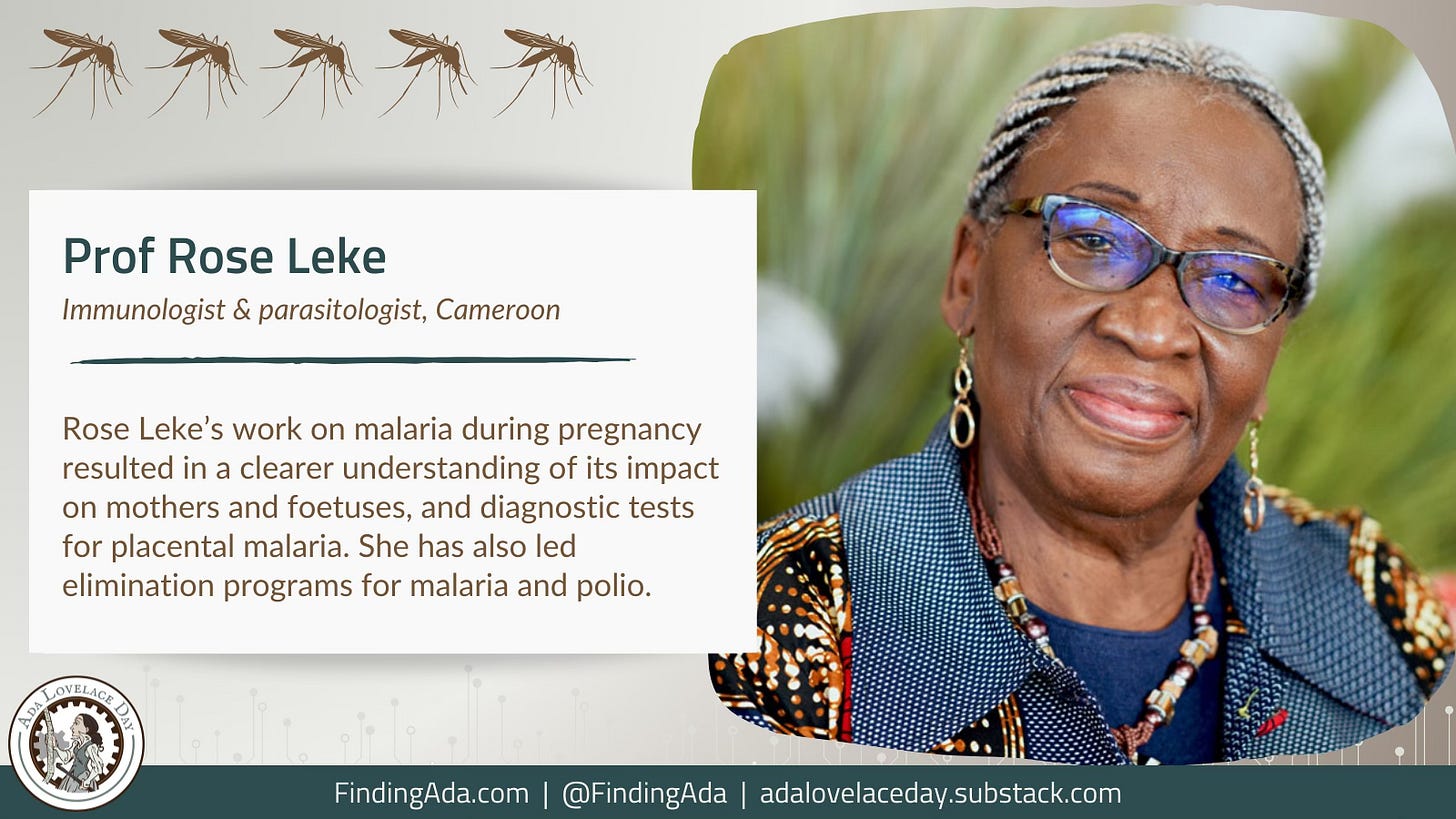Prof Rose Leke, Immunologist, Parasitologist and Malariologist
Rose Leke is an internationally renowned immunologist and parasitologist who has dedicated her career to helping eradicate malaria.
Professor Rose Leke
Professor Rose Leke is an internationally renowned immunologist and parasitologist who has dedicated her career to helping eradicate malaria. Working with Dr Diane Taylor at the University of Hawaii at Manoa, her research has advanced understandings of how malaria during pregnancy can harm the health of both mothers and foetuses. She has also dedicated many years to working on polio elimination programmes and advocating for better representation for women in STEM.
As a young girl growing up in rural Cameroon in the 1950s, Leke experienced regular bouts of malaria as a normal part of life. Her interest in medicine was initially sparked by the treatment she received for a lung abscess as a child: she wanted to understand exactly what she had gone through, as well as how she could help others experiencing health problems. In secondary school, Leke noticed how many pregnant women in her community were dying of malaria and decided to pursue a career in mitigating the harm caused by the disease.
In 1966, Leke left Cameroon for undergraduate studies in the US, followed by a masters and a PhD in parasitology in Canada. She then returned to Cameroon to research onchocerciasis, or river blindness. “To me, the choice was never going to be oncho, I had to do work in malaria,” she said later. Malaria was what she felt she “was supposed to do”.
That goal was certainly achieved. Leke has worked on malaria elimination programmes, served as a member of multiple national and international malaria response committees, and held the positions of Executive Director of the Cameroon Coalition Against Malaria and president of the Federation of African Immunological Societies. Her primary research focus is the immunology of parasitic infections, with emphasis on malaria in pregnant women, and she has worked for decades to improve clinical care for pregnant women suffering from the disease.
In the early 1990s, Leke began her decades-long collaboration with Taylor. The women’s research has made it easier to diagnose placental malaria and shown how the presence of the malaria parasite within the placenta can affect the immune development of newborns. Leke has also worked extensively on polio elimination, inspired partly by the experiences of close relatives who suffered with the disease.
Leke retired from senior university positions in 2013, when she was head of the Department of Medicine and Director of the Biotechnology Centre at the University of Yaoundé I in Cameroon. Two years later, she established the Higher Institute for Growth in Health Research for Women Consortium – furthering a lifelong commitment to improving gender equality in science and global health leadership. To date, the mentorship initiative has supported over 100 young women scientists in Cameroon.
Today, Leke is Emeritus Professor of Immunology and Parasitology at the University of Yaoundé I. She also serves as a chair or consultant on several global committees related to malaria and polio, including for the World Health Organization (WHO).
Among many awards, Leke was ceremonially named Queen Mother of the Cameroon Medical Community by the Cameroon Medical Council in 2019 and recognised for her “Achievement in Global Health Leadership” by the Africa Centres for Disease Control & Prevention in 2022. This year, she received the 2023 Virchow Prize for Global Health – honouring her “pioneering infectious disease research towards a malaria-free world and relentless dedication in advancing gender equality”.
You can follow her work here:
Twitter: @LekeRose
Further Reading
Rose Leke, Wikipedia
Interview With Professor Rose Leke: How To Certify A Region As Wild Polio Free, Africa Kicks Out Wild Polio
Written by Moya Crockett, with thanks to Stylist for their support.




